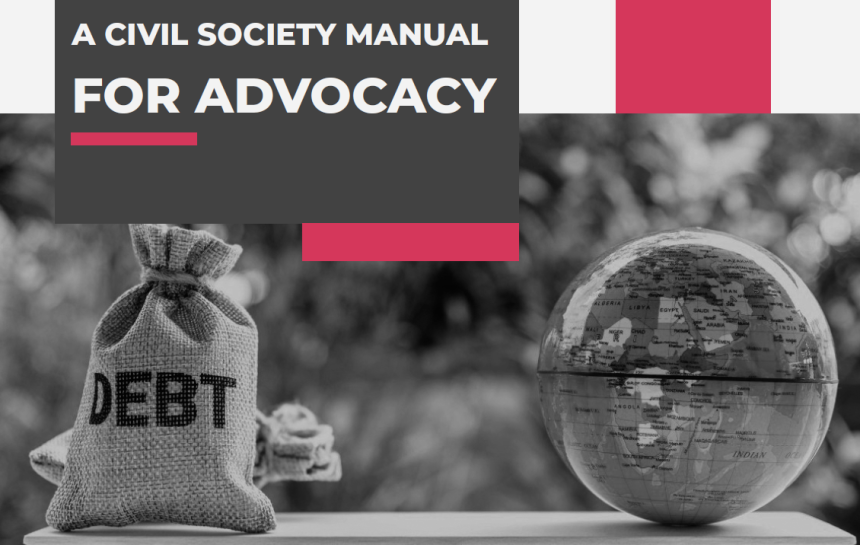
Debt and Human Rights: A Civil Society Manual for Advocacy - Zeina Abla
Introduction
Indeed, these are unprecedented times, and public debt levels cannot be addressed as “business as usual.” A systemic change is necessary to address public debt conditions and their impact on human rights, as well as to achieve social and economic justice.
This manual aims to inform civil society organisations and their stakeholders in the Arab region about public debt, its relation to, and repercussions on, economic and social rights, as well as sustainable development, in order to advocate for change towards the fulfilment of rights and debt justice. It focuses on the relationship between public debt and human rights, encompassing human, socio-economic development, and environmental sustainability. The manual serves as a primer, starting with an introduction to concepts and presenting the public debt structure, its determinants, and relevant indicators. It also outlines the mainstream debt sustainability frameworks and alternative approaches that consider public debt from a rights-based perspective. It concludes with suggestions for initiating action to integrate human rights into all aspects of public debt. The manual employs the terms "Global South" and "developing countries" interchangeably to refer to the same group of nations.
The focus is on the Arab region, and the manual includes examples and a brief debt profile of six highly indebted middle-income Arab countries: Egypt, Iraq, Jordan, Lebanon, Morocco, and Tunisia. Most of these countries have borrowed from the International Monetary Fund (IMF) and continue to face challenges related to public debt.
Governments’ borrowing increases financial resources and can stimulate economic growth and improve public services, provided it is well-planned and utilized. In principle, it should be invested in areas that drive national development and fulfil human rights. However, many low- and middle-income countries are trapped in a harmful cycle of public debt dependency (primarily external debt). Borrowing is more expensive, and debt payments are more difficult to meet.
Global public debt has increased significantly over the last two decades, reaching incredibly high levels. The vast majority of countries in the South face a critical situation, especially in the post-COVID era. The trend projections are not promising either, with more than half of this debt expected to continue climbing. By the end of 2024, the IMF was warning of an “elevated” level, reaching US$100 trillion and projected to increase in the medium term. It repeated its calls for further fiscal measures to “prioritize debt sustainability and rebuild fiscal buffers." , This issue affects not only low-income countries but also middle-income countries, and it has a global scope.
The public debt of the Arab region has surged exponentially over the past decade, with Arab middle-income countries bearing the brunt of the burden. The public debt of Algeria, Egypt, Jordan, Lebanon, Morocco, and Tunisia nearly reached $700 billion in 2022, equivalent to half of the region’s total debt. Comoros, Djibouti, Somalia, and Sudan face a debt crisis threat . The borrowing of Arab countries is following the same global pattern: an increasing reliance on external debt from private creditors. The share of the latter out of total external debt increased from less than a third to more than two-fifths between 2010 and 2022, while debt from bilateral creditors (other countries) and official aid declined. The situation worsened after the COVID-19 pandemic, as economic growth also slowed down, and external debt repayment consumed a larger share of exports and government revenues.